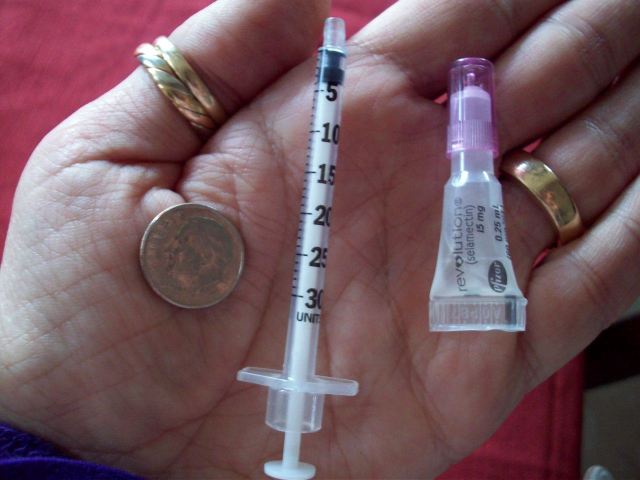QuestionWhat do you think of neutering a rat? My rat bites me and fights with the rats, tossing them around, holding them down and grooming them very hard, chasing them around. They squeal and run away. I heard it is painful to have done and there is a certain way to neuter them then other ways? Can I give him aspirin for pain? He has ahlot of potential and I hate to give him back to the place I got him from.
What way should I be sure the vet is doing the surgery on him to be sure he has the most comfortable of the types of operations?
thanx
AnswerThe only time neutering a male rat will reduce aggression is if the aggression is being caused by an excess of testosterone. If that is the case, neutering him could calm him down and reduce aggression and urine marking but you will still need to do some trust training.
Is he a new rat that you have recently added to your cage, or did you get him around the same time as your other boys? How old is he?
Something good to know about males is that around 6 months of age they go through a type of puberty, becoming adults... This is when they will start working out a pecking order in the cage which could result in some power grooming, squabbling with low squeaks, boxing, and even mounting. They do this to establish an alpha rat and the lower ranking rats will have to respect that alpha. That is just how it works in their world.
I always say though, that if no one is being injured, all is well. In every "mischief" or group of rats, there is a hierarchy, the alpha, the one in charge. By pinning other rats down, and showing them who's boss he could be trying to take over as the new alpha male in the cage. If he is actually injuring the other rats, it's best to first remove him and let him live alone and try to re-introduce him in to the cage again slowly.
Trust training a biter is very important. It takes time and patience but it can be done! The first thing you need for trust training is a favorite yummy treat. I prefer wet foods that can be fed on a spoon because it forces the rat to stay with you and not run away with a treat. Try yogurt, vanilla pudding, or baby food. Just make sure your rat really loves the treat :)
Sit alone in a secure and quiet room. Bathrooms work well as long as you will not be disturbed in the process and there are no holes (check under cabinets) that the rat can escape in to. Open up the cage door (assuming he is alone, if not you can do this with his buddies around and he will learn from them that it's okay to be around you. Leave the cage door open and sit in the middle of the room with your pudding or yogurt and a spoon. Stay still and quiet and when needed use very smooth movements and speak softly and sweetly to him. When he comes out of the cage let him explore. He might not come to you on the first day, but when he does- offer him your hand or something to sniff. If he bites, set him back in the cage and close the door- not allowing him any treats. After a few minutes, open the door again and start over. If he ventures over and does not bite, offer him a bit of the treat, some scritches, and let him go on his merry way. In time, he will learn that biting makes his playtime get cut short and also leaves him without a treat. Not biting allows him to continue playing and allows him to get a yummy treat! It might take a while, this will not happen in one day or one session. But I recommend you do this on a daily basis for atleast 30 minutes to an hour for it to be completely effective.
I wish you well with your little boy. I think that trust training is a good route alone, and if he does have excess testosterone, nuetering AND trust training might also work. Just be sure that the vet you are seeing is experienced in seeing rats and has done a neutering procedure on rats in the past. There are exotics specialists out there, some that even specialize in rats. Do your research first :)
Now, as far as there being different types of neutering procedures, I am unsure. There is another expert on this site who knows much more about veterinary medicine as she works along side vets who care for pet rats. Her name is Sandra Todd and if you have further questions about neutering I highly recommend you contact her :)
I hope I was able to help you out in some way and I would love to hear an update after you try the trust training :) Good luck and please don't forget to rate my answer when your finished! :) THANKS!

 Luna
QuestionLuna
Chiara and Luna
QUESTION: Hi
Luna
QuestionLuna
Chiara and Luna
QUESTION: Hi
 Re prev post weird twitching before xmas
QuestionQUESTION: Unfortunately Soupy passed away as i
Re prev post weird twitching before xmas
QuestionQUESTION: Unfortunately Soupy passed away as i
 Overgrown Teeth
QuestionDarkWings teeth
QUESTION: My Dumbo Rat,
Overgrown Teeth
QuestionDarkWings teeth
QUESTION: My Dumbo Rat,
 selamectin/ pic
Questionselamectin
QUESTION: Dear Sandra ,
&nbs
selamectin/ pic
Questionselamectin
QUESTION: Dear Sandra ,
&nbs
 New Rat - smelly droppings
QuestionHi - we just got our first rat one week ago for
New Rat - smelly droppings
QuestionHi - we just got our first rat one week ago for